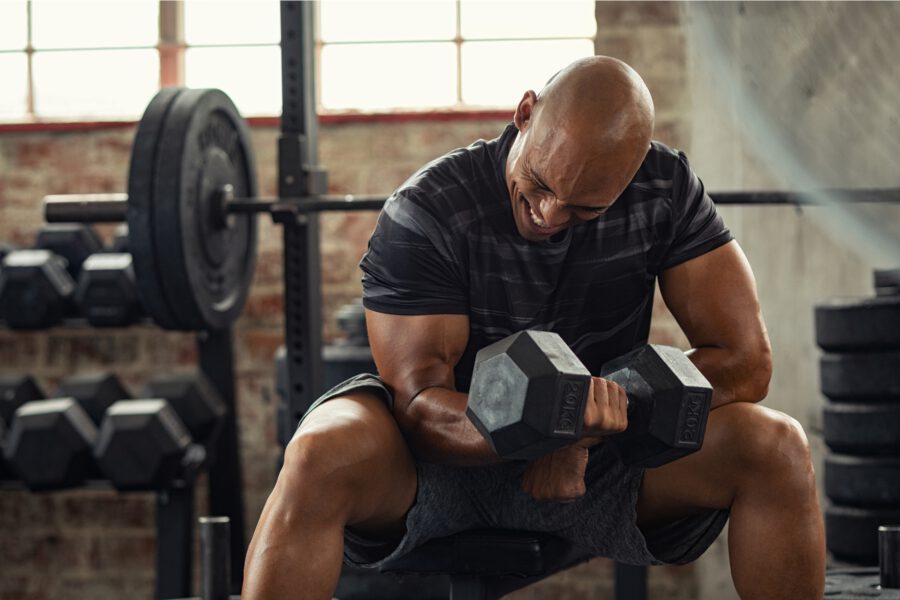Is Heavy Lifting Required for Building Muscle Size?
It is a common belief that heavy lifting is required for building bigger muscle size.
Conventional wisdom taught us that lifting heavier weights in the low to moderate rep range is for maximizing muscle growth. On the other hand, light weights combined with high reps develop muscle endurance.
Lifting heavier loads over time is indeed an excellent stimulus for muscle hypertrophy. However, the benefits of lifting lighter loads should not also be overlooked when building muscle size.
This article will discuss what science has to say about building muscle size using heavier or lighter weight.
One study done by Cameron Mitchell and colleagues assessed the hypertrophic gains of lifting heavier loads compared to lighter weights on 18 untrained individuals.
The researchers have found that there is no significant difference in the quadricep muscle growth of those in the light weight and heavy weight groups. Both groups have gained equivalent muscle mass after training 3x/week for 10 weeks.
However, the study was performed on untrained individuals. Therefore, the equal muscle gains for both groups could be attributed to novice gains, where muscle will grow with any amount of decent exercise.
Interestingly, a similar study was done in 2016 using trained individuals with at least 4 years of lifting experience. The study found no significant difference between training with high or low loads as long as the sets are close to failure.
The results are also the same for the latest studies and meta-analysis.
Mechanical tension and metabolic stress are the main mechanisms that drive muscle growth.
Mechanical tension is produced by the time your muscle spends under tension provided by external weight or load.
Metabolic stress is the accumulation of metabolic byproducts in the muscle cells due to blood flow restriction and fatigue during an exercise.
Lifting heavier weights will result in increased mechanical tension within the muscle. Inversely, lifting lighter weights with a higher rep range will lead to increased metabolic stress.
Although lifting heavier loads and lighter loads with high reps target different mechanisms, they will eventually lead to the same result.
Here’s a training plan that focuses on both metabolic stress and mechanical tension:
Heavier loads will bring your muscle closer to failure faster and will make them stronger over time. Higher reps with lighter loads, on the other hand, can also provide great stimulus for muscle growth, especially when pushing the muscles for extra reps to achieve failure.
The closer the rep to failure, the more effective it is for muscle building
You could combine these two techniques to maximize your gym training potential and stimulate hypertrophy even more. For example, you can perform main exercises with heavier loads and use lighter loads on accessory exercises targeting the same muscle groups.
Sample workout:
- Bench Press x 6-10 reps x 3 sets (Heavier weight)
- Pec Fly x 12-15 or more reps x 3 set (Lighter weight)
You can have 2 or more main exercises with heavier loads followed by a couple of lighter loads of accessory exercises to further stimulate the target muscles and achieve failure.
Lifting lighter loads is considered a safer method of building muscles, especially if you are a beginner. Focus on gradually building your strength in the gym and leave the ego outside when training.
Remember that it is not about how much you lift but how well you fatigue the muscle. Time under tension and metabolic stress through proper exercise execution are more important factors for muscle hypertrophy.
Lifting heavy can give you faster results as you can achieve muscle failure in just a low amount of rep. However, it is not the only way to train your muscles to grow.
Lifting lighter weights with a high rep range can produce the same muscle growth as lifting heavier weights. Just remember to increase your loads as you get stronger to provide enough stimulus for hypertrophy.
